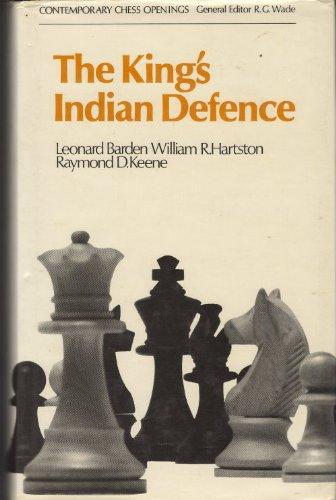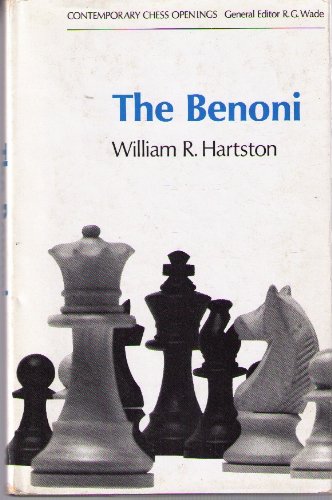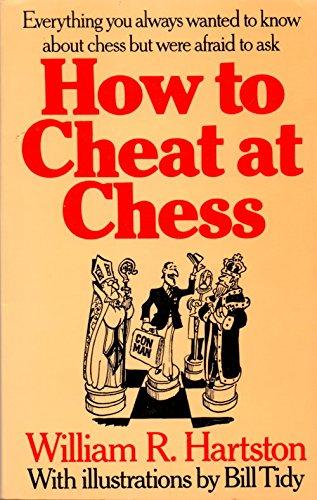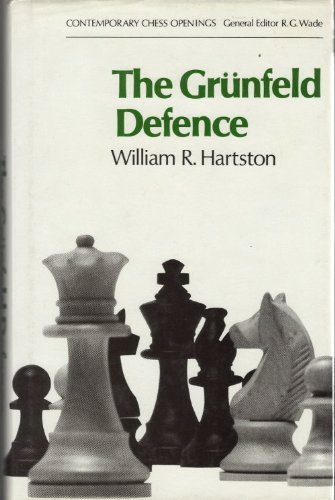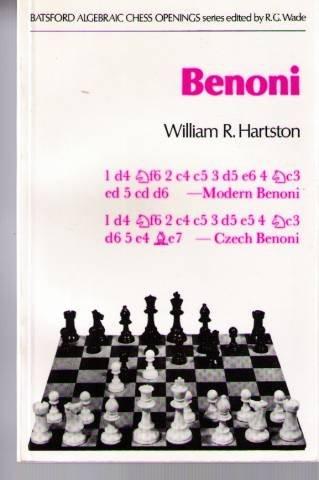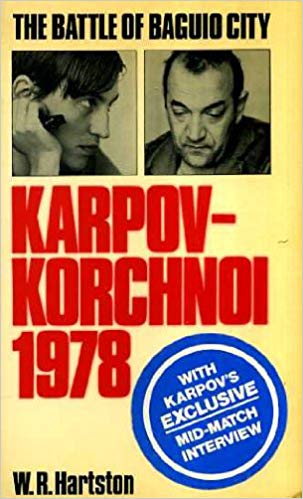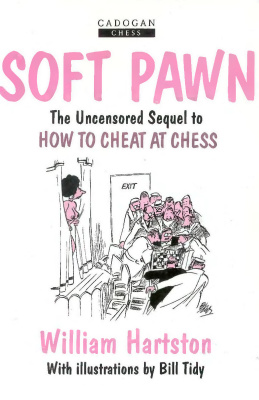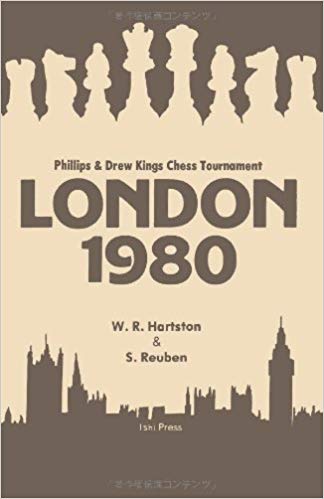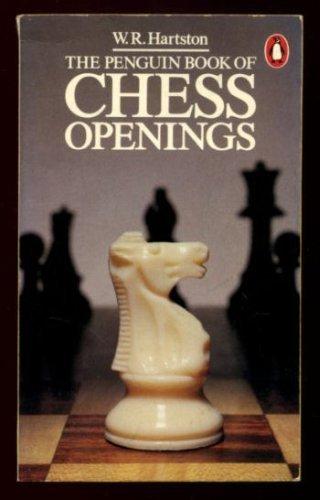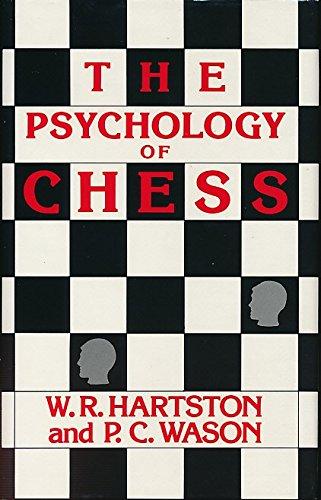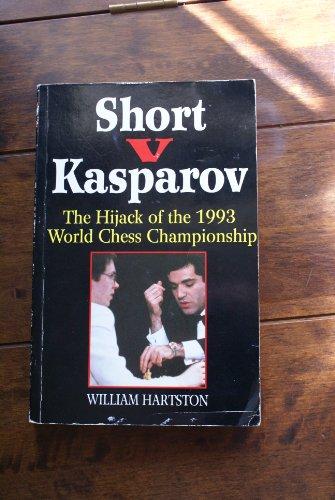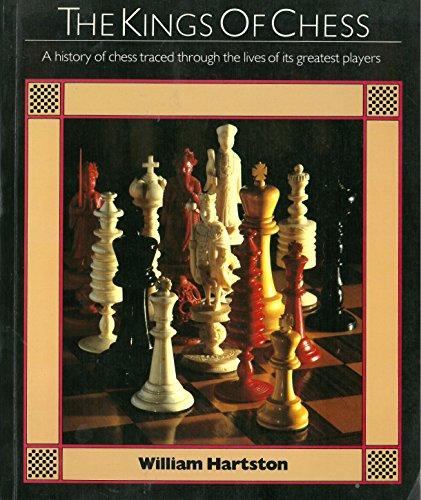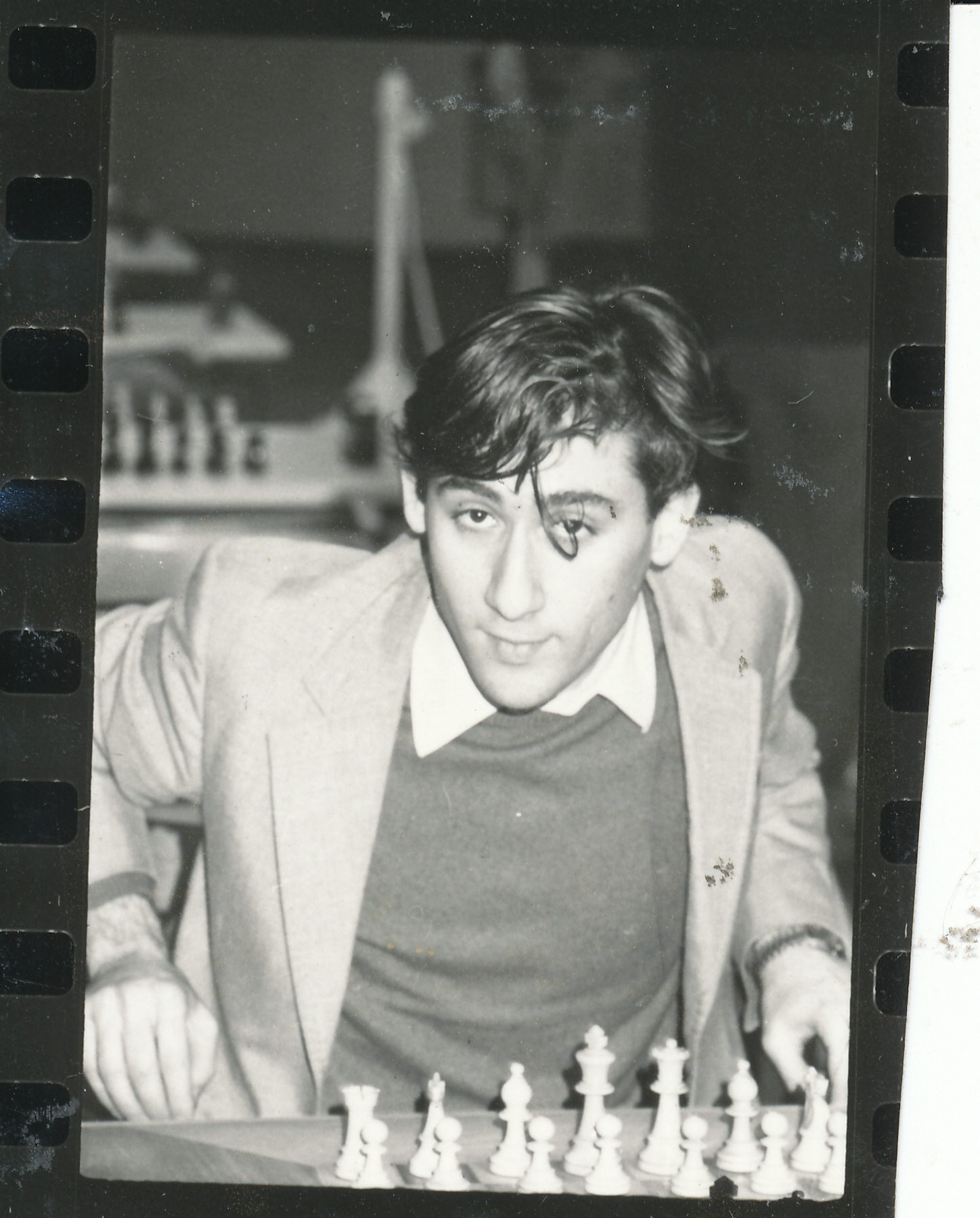
- This event has passed.
Birthday of IM Bill Hartston (12-viii-1947)
August 12, 2024
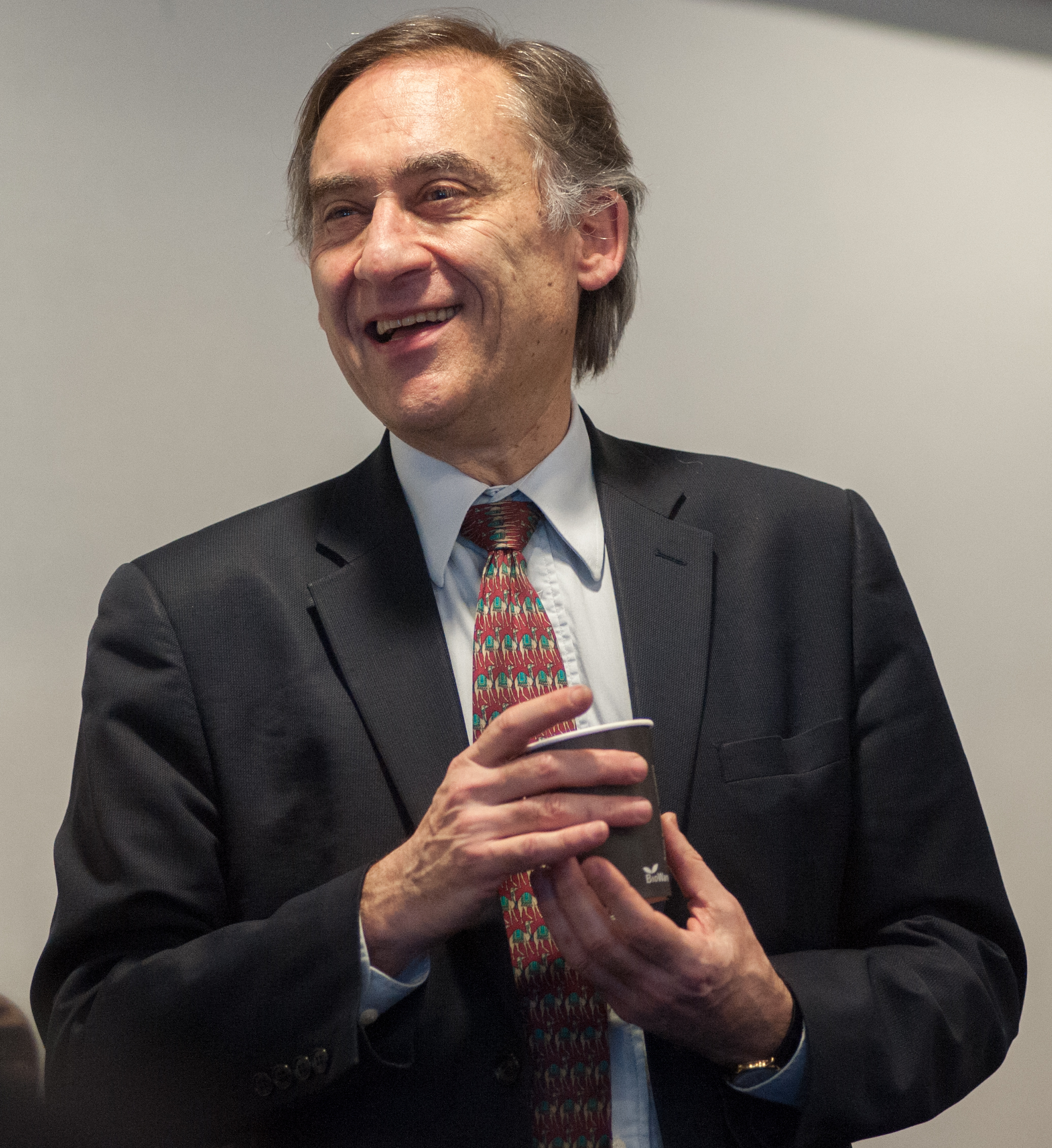
On the “glorious twelfth” of August we celebrate the birthday of one of England’s most popular chess players and writers, IM Bill Hartston.
William Roland Hartston was born in Willesden, Middlesex on Tuesday, August 12th, 1947. His father was William Hartston, a significant member of the Royal College of Physicians who was married to Mary Rowland. Bill has a sister.

He studied at the City of London School and then studied mathematics at Jesus College, Cambridge and graduated with a BA in 1968 and an MA in 1972, but did not complete his PhD on number theory.

While studying for his PhD at Cambridge, Hartston developed an intricate system for balancing an entire chess set on top of a single rook. Here is an article with an explanation letter from Bill.
Bill married Dr. Jana Malypetrova in January, 1970 in Cambridge. In 1978 Bill married Elizabeth Bannerman, also in Cambridge and from that marriage he had two sons, James and Nicholas.
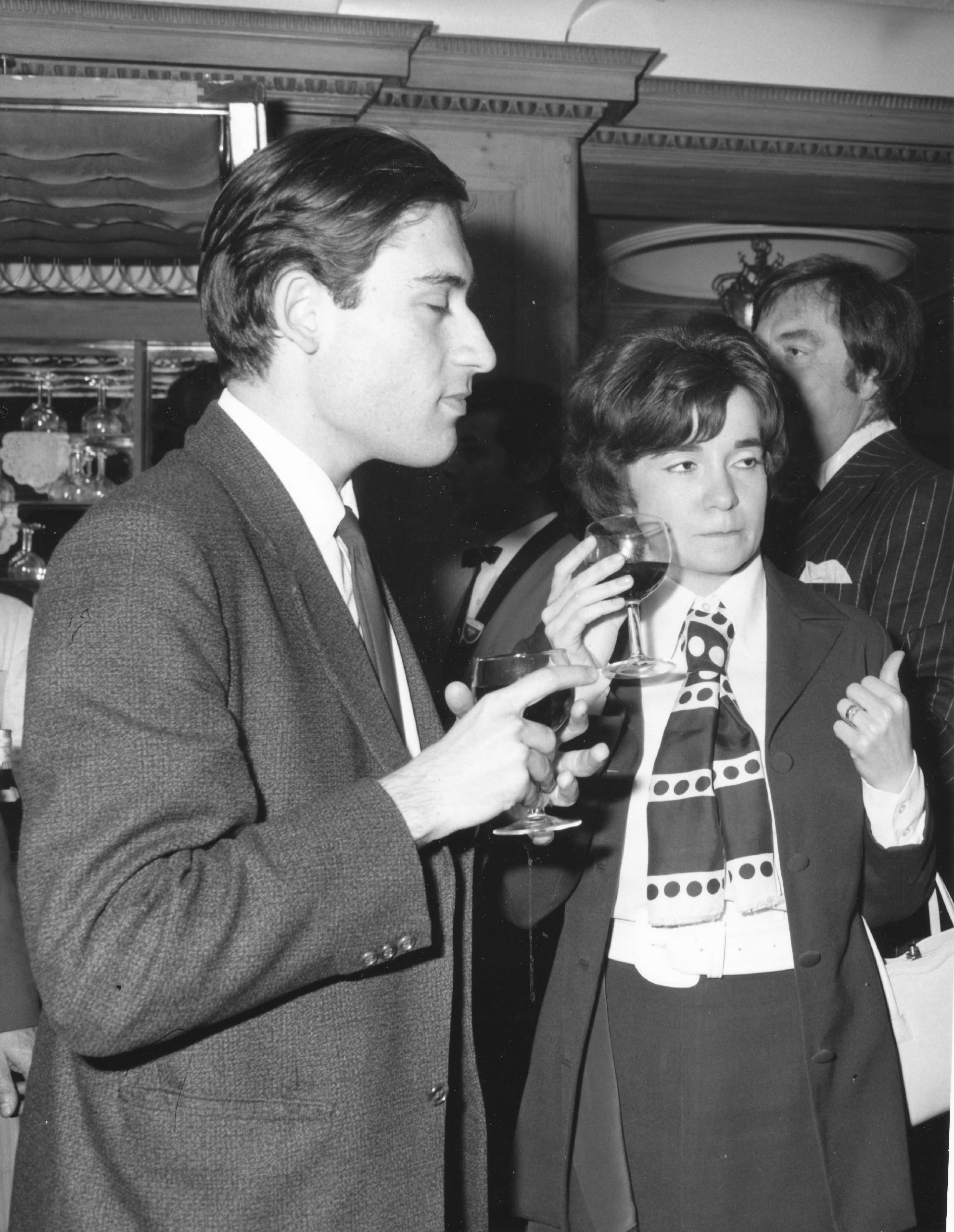
Bill became an International Master in 1972 and his highest FIDE rating was 2485 in January 1979.
With the white pieces Bill almost exclusively played 1.e4 and the Ruy Lopez.
With the black pieces Bill played the Sicilian Taimanov and the Czech Benoni.
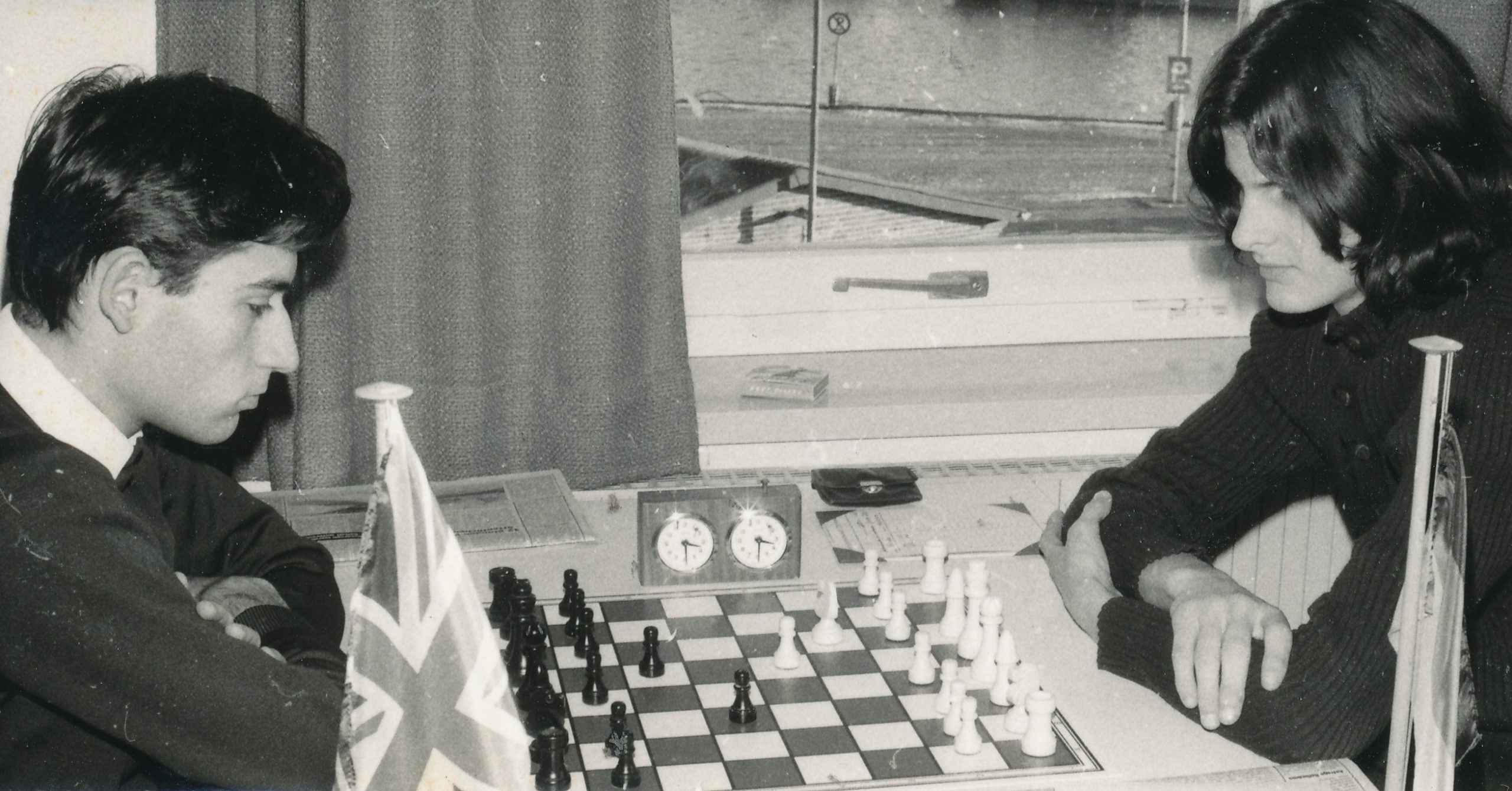
Bill is a self-proclaimed follower of Prof. AJ Ayer (See the Acknowledgements in “Soft Pawn”) Clint Eastwood and Tottenham Hotspur Football Club.
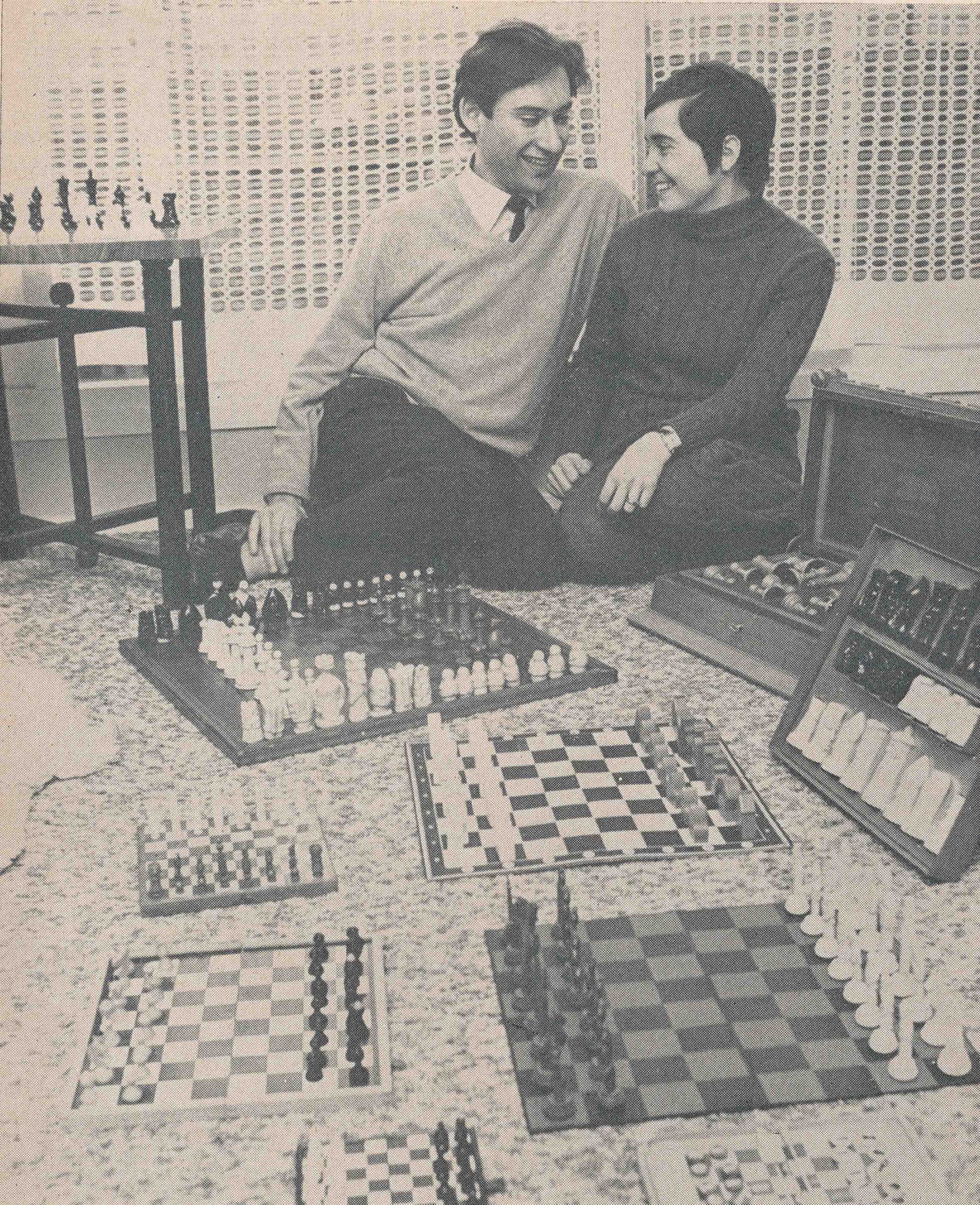
Bill was the chess correspondent of The Independent and The Mail on Sunday. He was also a regular presenter and commentator for television. He worked with Jeremy James on the BBC’s Master Game.
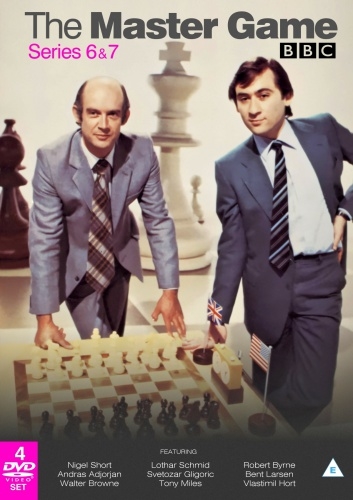
Bill is an industrial psychologist.
Curiously the 1984 edition of the usually reliable The Oxford Companion to Chess by Hooper and Whyld does not have an entry for the twice British Champion : was this simply an oversight ? Jana is also not mentioned.
Bill wrote about himself in British Chess (Pergamon, 1983) :
“To summarise more than 20 years of playing competitive chess in a few hundred words is an impossible task. My attitude to the game has changed a great deal, especially in recent times, but I have always enjoyed and felt at home in the tense and lively atmosphere of chess tournaments, whether as a competitor, spectator or journalist.
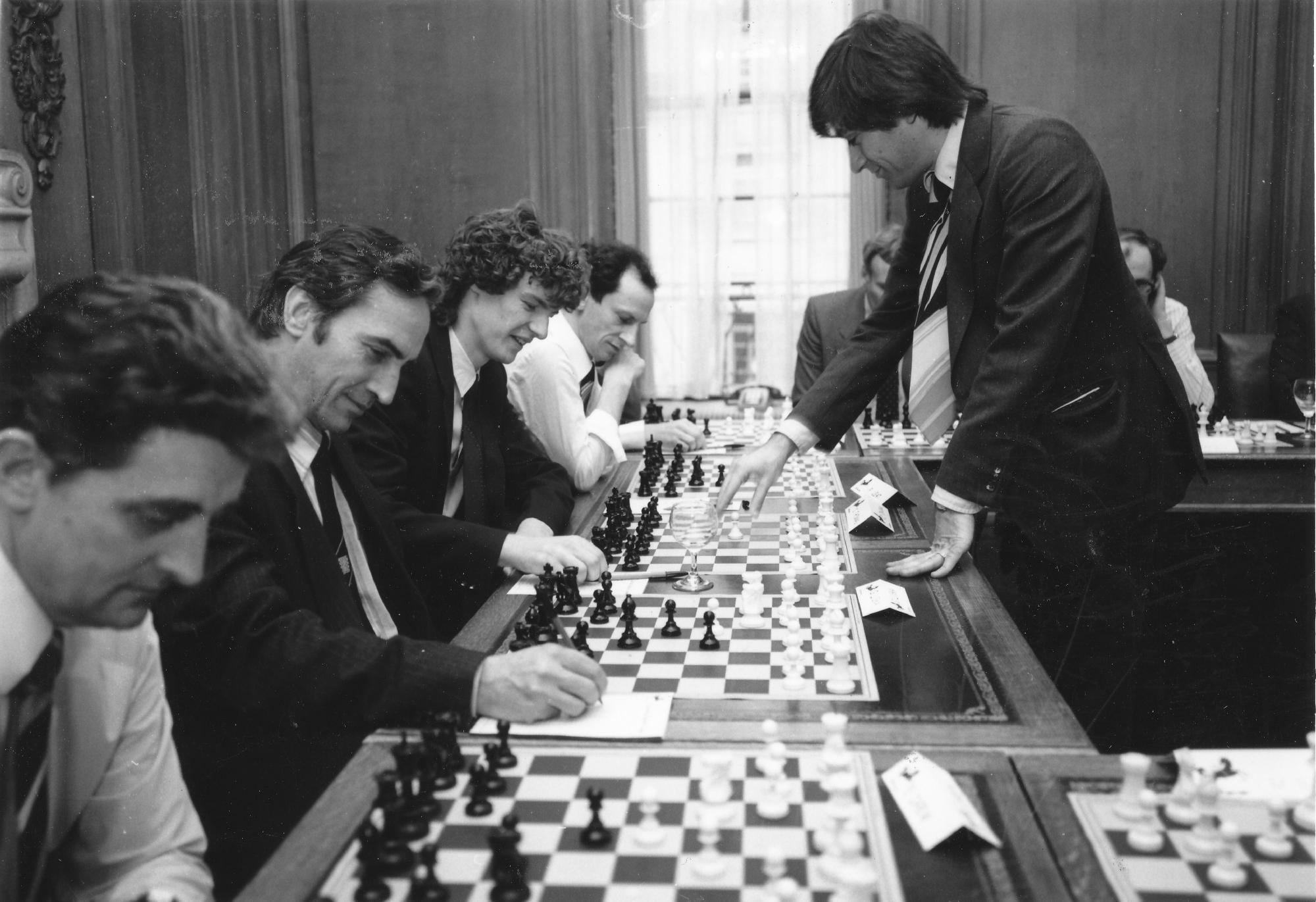
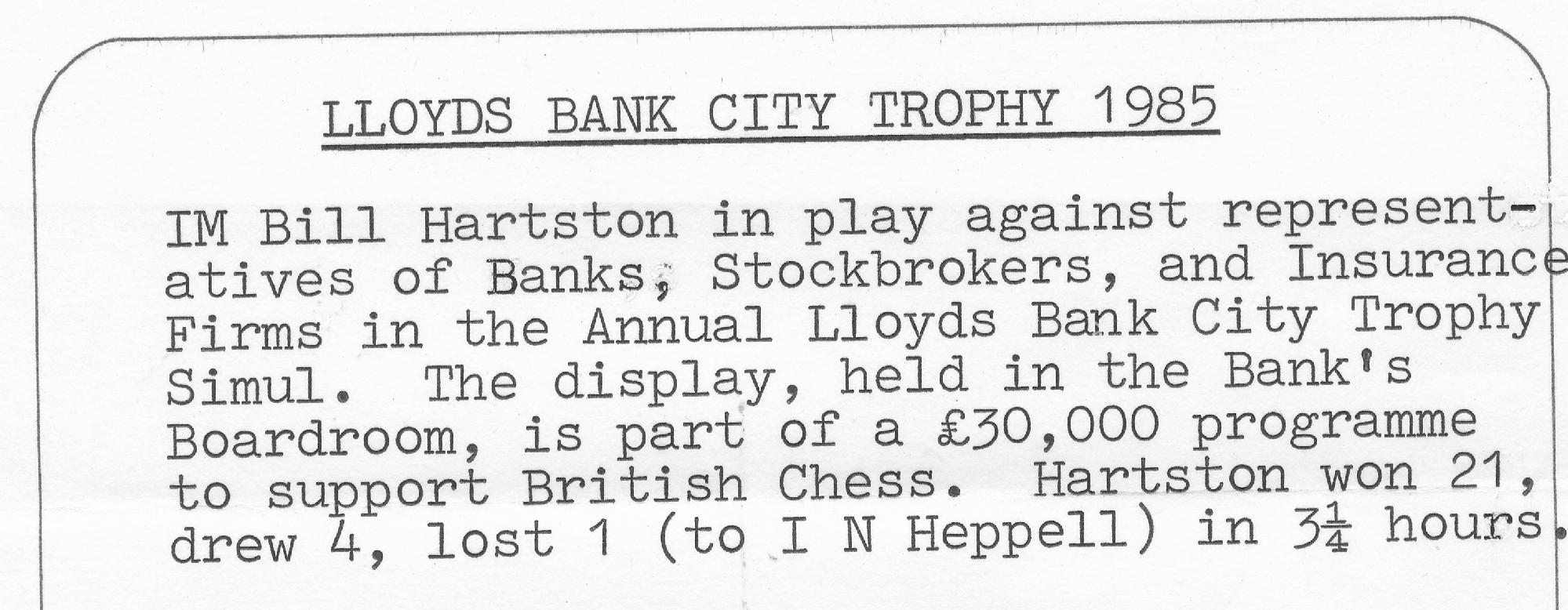
I consider myself lucky to have been a ‘promising junior’ just at the time when chess was beginning to be taken seriously as a sport in England. The English team consisted mainly of amateurs and there were clear opportunities for anyone willing to work at the game. As a result of the changing attitudes to the game in this country, the development between 1965, when I first played for the national team, and 1975 was far greater than in any other decade. One statistic which I have always found personally amusing is that I progressed from youngest player in 1967 for the Clare Benedict tournament to become the oldest in the 1971 team. From promising junior to veteran in four years = is this a record ?
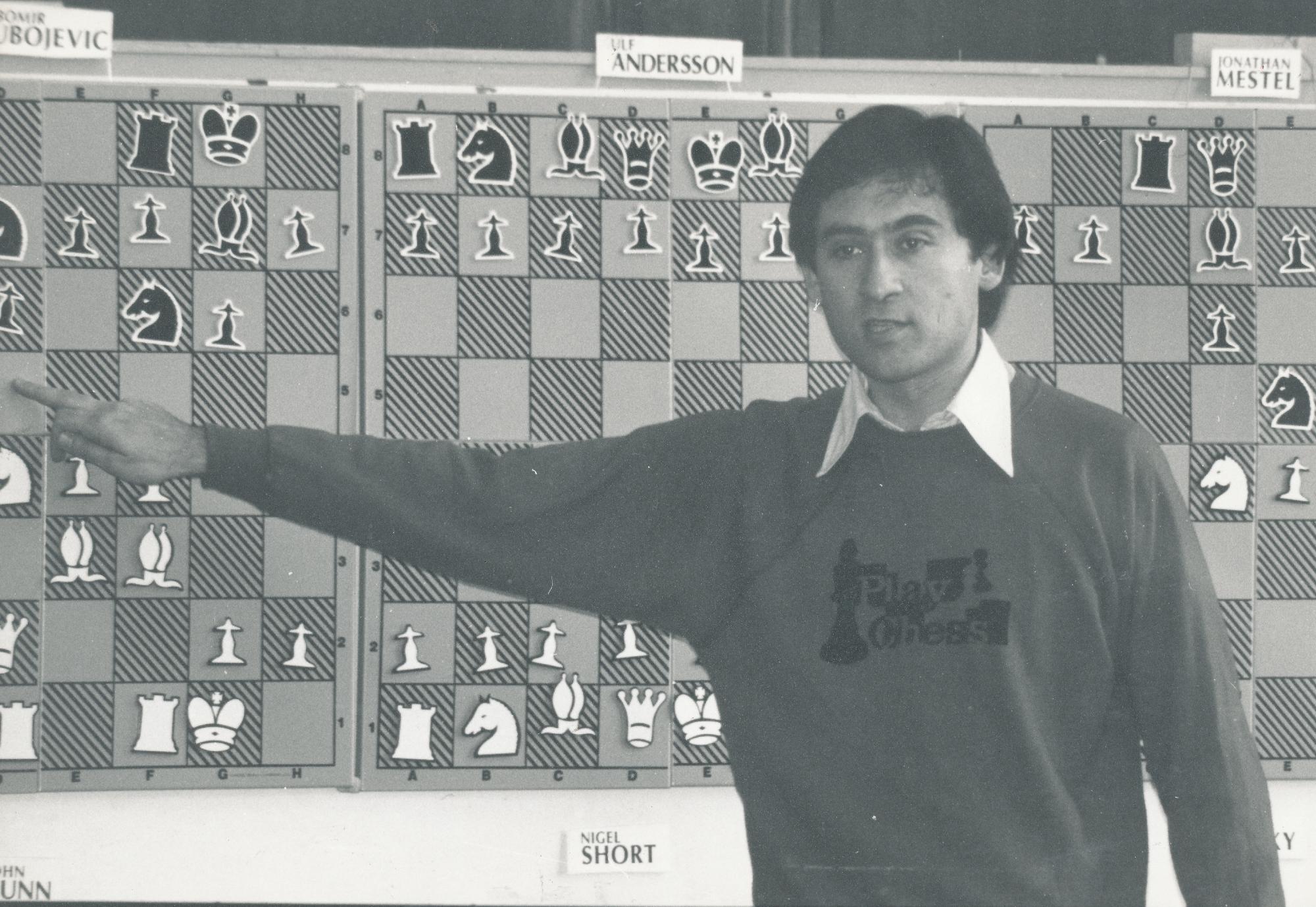
Since my second British Championship win in 1975, I have been writing more and playing less. I always realised that I was not going to become a sufficiently strong player to be happy just wandering round the tournament circuit, but giving up chess entirely is, of course, unthinkable. I believe now that the time is ripe for chess to be presented to far wider audiences and I like to think that some of what I do will help in that aim. If the Master Game television series and “Soft Pawn” cannot sell chess to the masses then nothing will.”
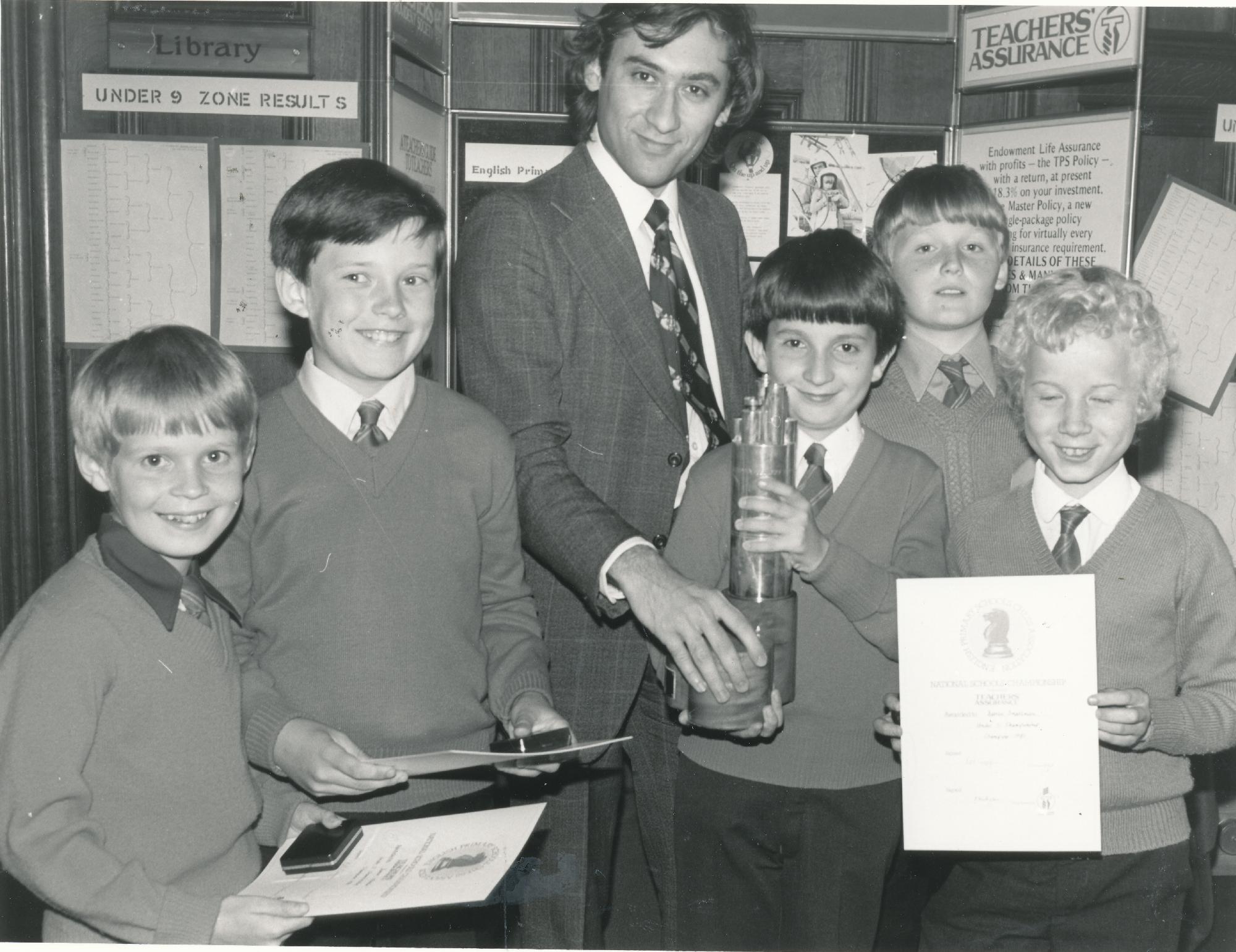
Harry Golombek wrote the following in a 1980 Dataday chess diary :
“Hartston played hardly at all during the period from my last entry of him in the 1977 diary and that little, though respectable, was hardly the performance of an active master. His equal 3rd to 5th at the big Aaronson’s Masters Tournament (a swiss system event with 72 players) did not really affect his rating and indeed he finished up without changing his Elo rating at all.
Nevertheless, this glimpse of his true powers was impressive as can be seen in the following game which was played in the 6th round of the Aaronson tournament.”
From The Encyclopedia of Chess(Robert Hale, 1970 & 1976) by Anne Sunnucks :
“International Master (1972) and British Champion (1973) William Hartston was born in London on the 12th August 1947. He was taught to play chess by his father when he was seven and five years later joined Enfield Chess Club. His results in junior events included 1st in the London Boys’ Under 16 Championship and 2nd in the British Boys’ Under 15 Championship in 1962 and =2nd in the British Boys Under 18 Championship in 1963.
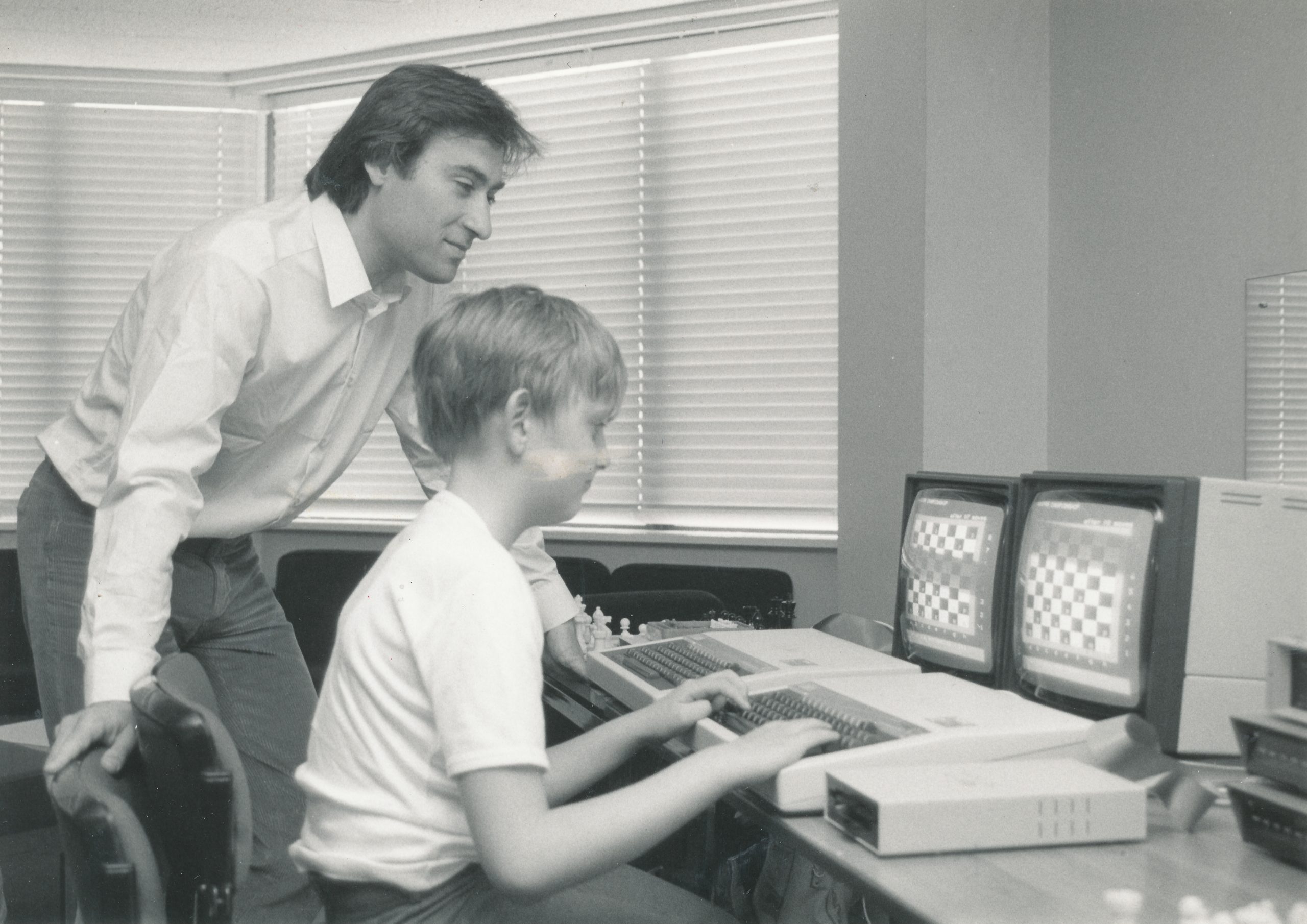
In 1965, Hartston made his first appearance in the British Championship and came =5th. In the same year he won the Ilford and Paignton Premier tournaments. Playing on board 3 for England in the 1966 Olympiad. Hartston scored the best result of any British player, 66.7%. In the Olympiad of 1970, he had the best overall score on board 3, 12.5 out of 16 and in the Olympiad of 1972 he won the prize for the 3rd best score on board 2, 12.5 out of 18. In 1972 he narrowly failed to qualify for the Interzonal tournament, when he came 3rd in the Zonal tournament at Vranjacka Banja.”
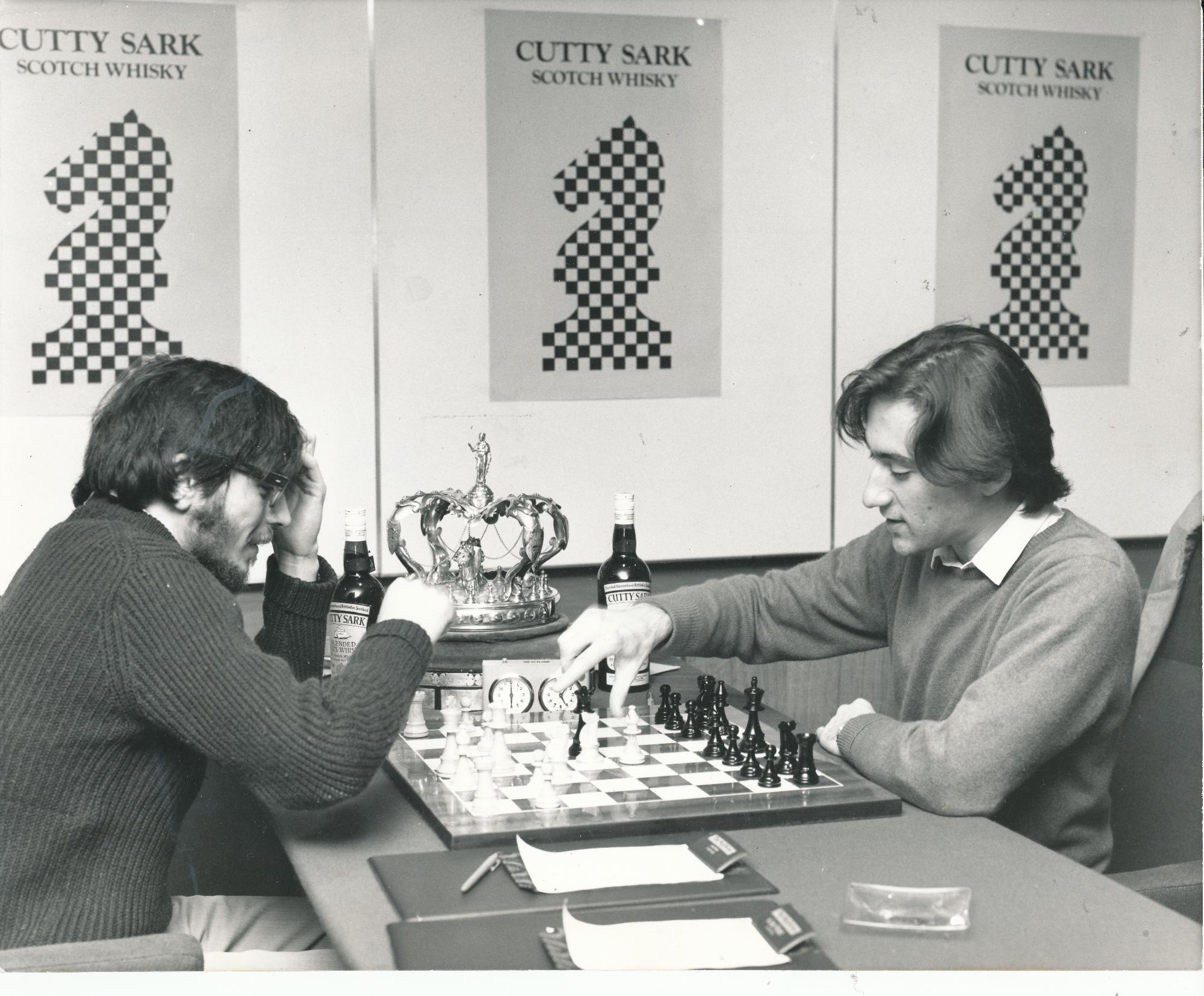
From The Encyclopedia of Chess (Batsford, 1977) by Harry Golombek :
“British International Master and twice British Champion. Hartston was born in London and his early chess was played there., where he became London Boy (Under-16 Champion in 1962.
He was educated at the City of London School and Jesus College, Cambridge, where he took a degree in mathematics.
It soon became clear that he was one of the leading young players in England and a rivalry developed between him and Raymond Keene in which first one and then the other obtained the upper hand.
After a number of near misses he won the British Championship at Eastbourne in 1973 and again at Morecambe in 1975.
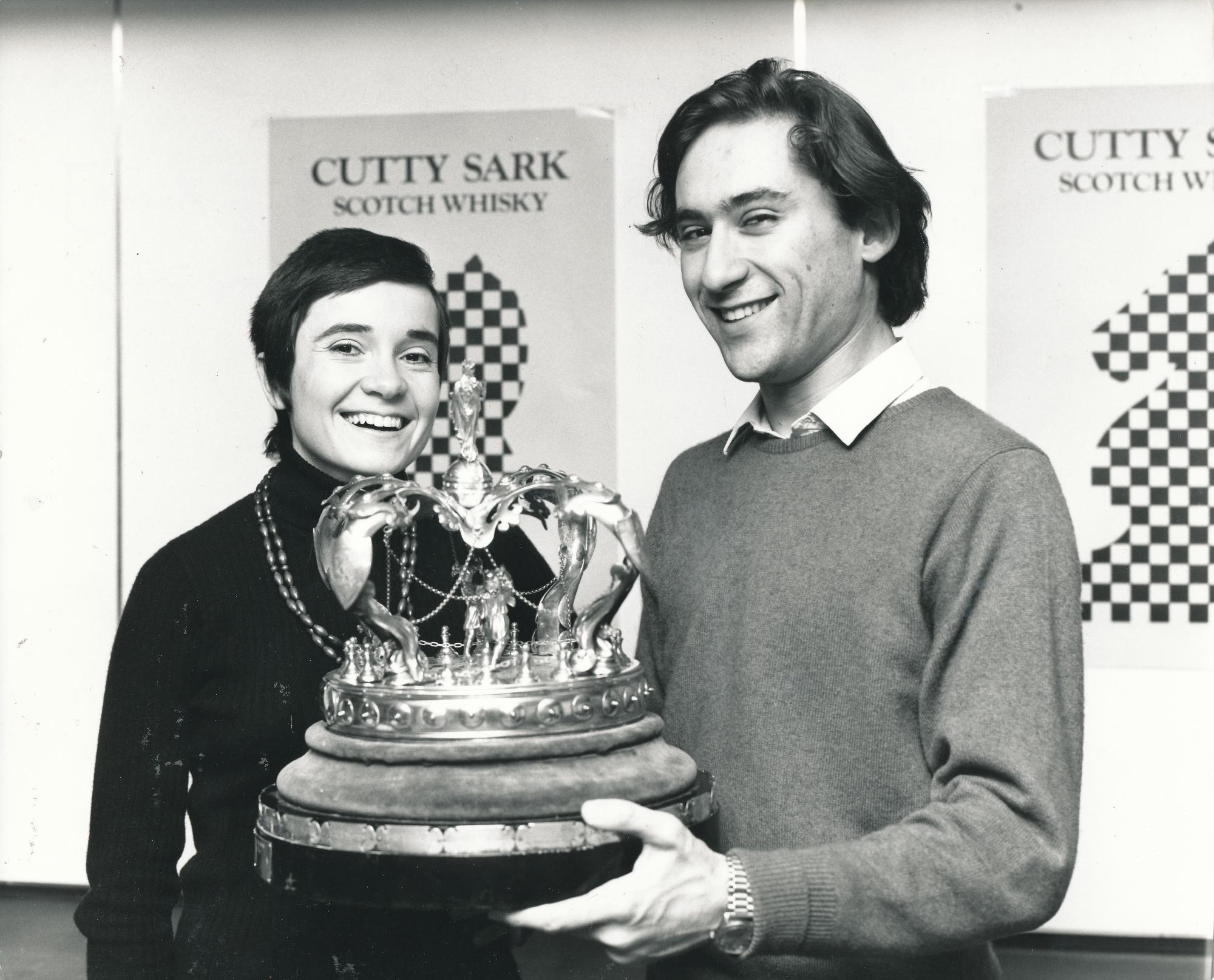
Internationally he has already had a distinguished career and has been especially good and consistent in his representation of England at the Olympiads. At Havana in 1966 he scored 66.7% on board 3 but did not play at Lugano in 1968. Again on board 3 at Siegen in 1970 he obtained the best score on board 3 with 78.1%. At Skopje 1972 he fulfilled the second norm of the international master title with 12.5 points out of 18 on second board. Playing on first board at Nice 1974 he attained 52.7% and had a most meritorious and well fought draw with the World Champion, Karpov.
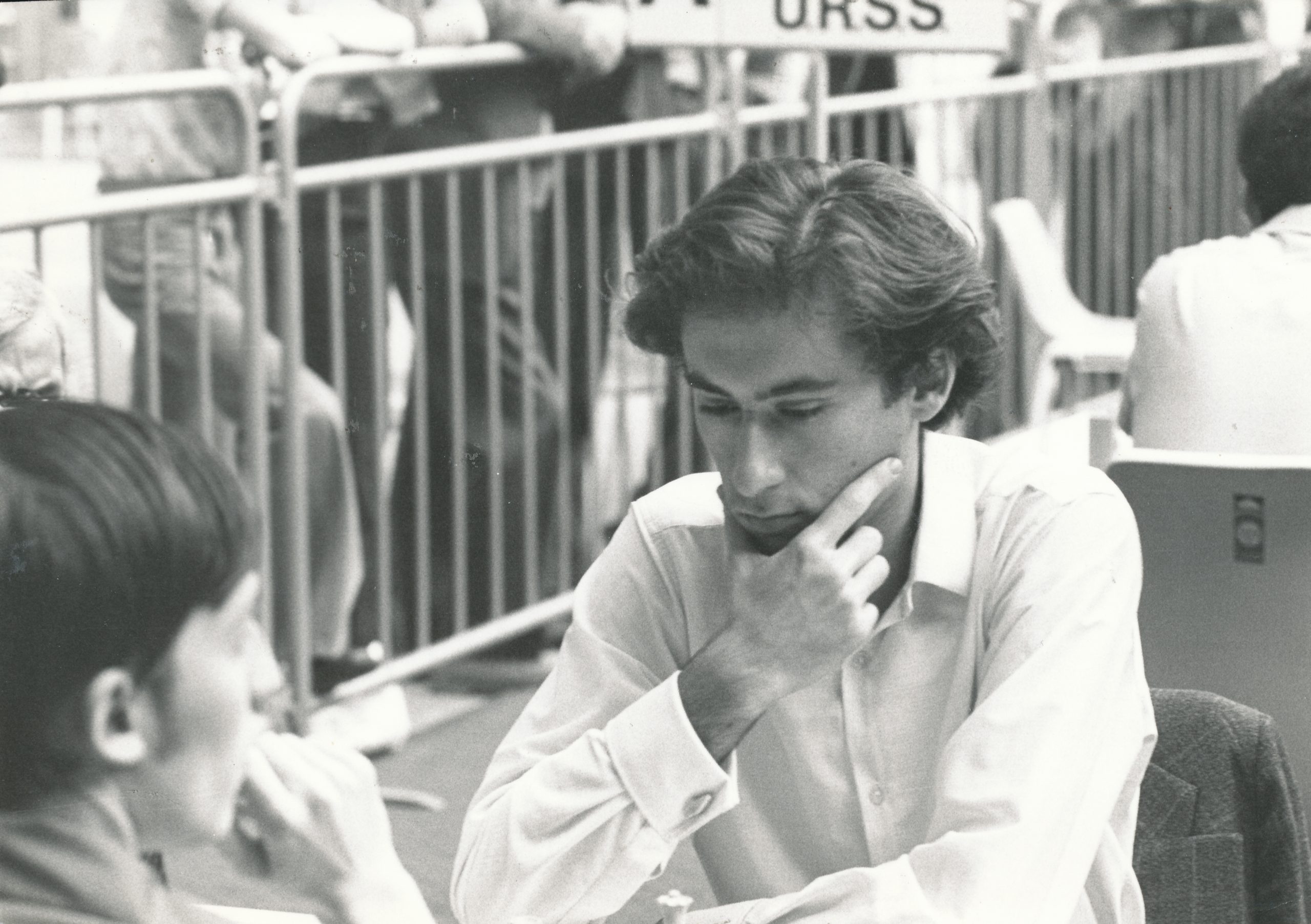
He achieved a breakthrough in the field of international tournament chess when he came third in a strong Premier tournament at Hastings 1972/3
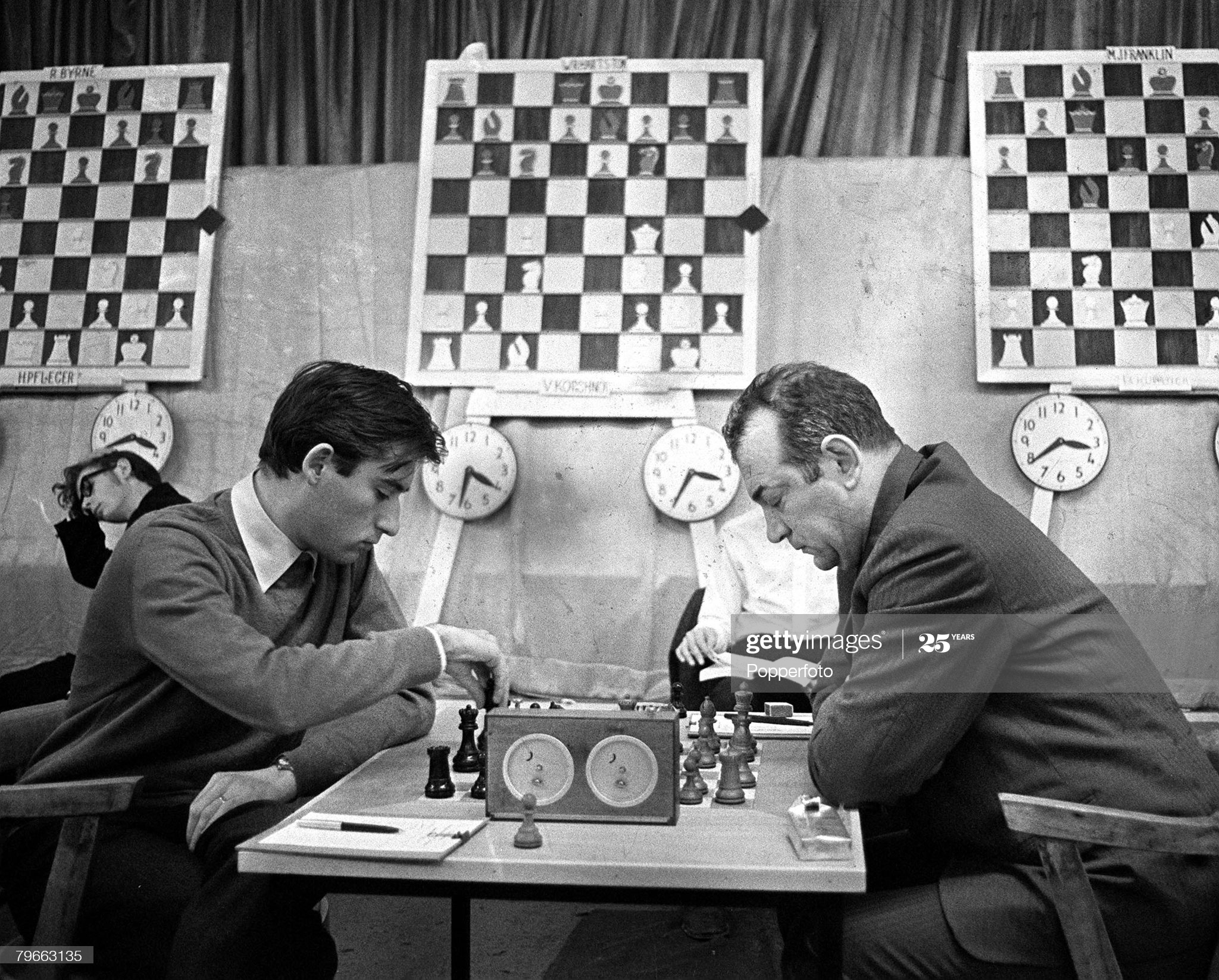
and in 1973 he scored a first at Alicante.
His best tournament result came three years later when he won 1st prize at Sarajevo 1976.
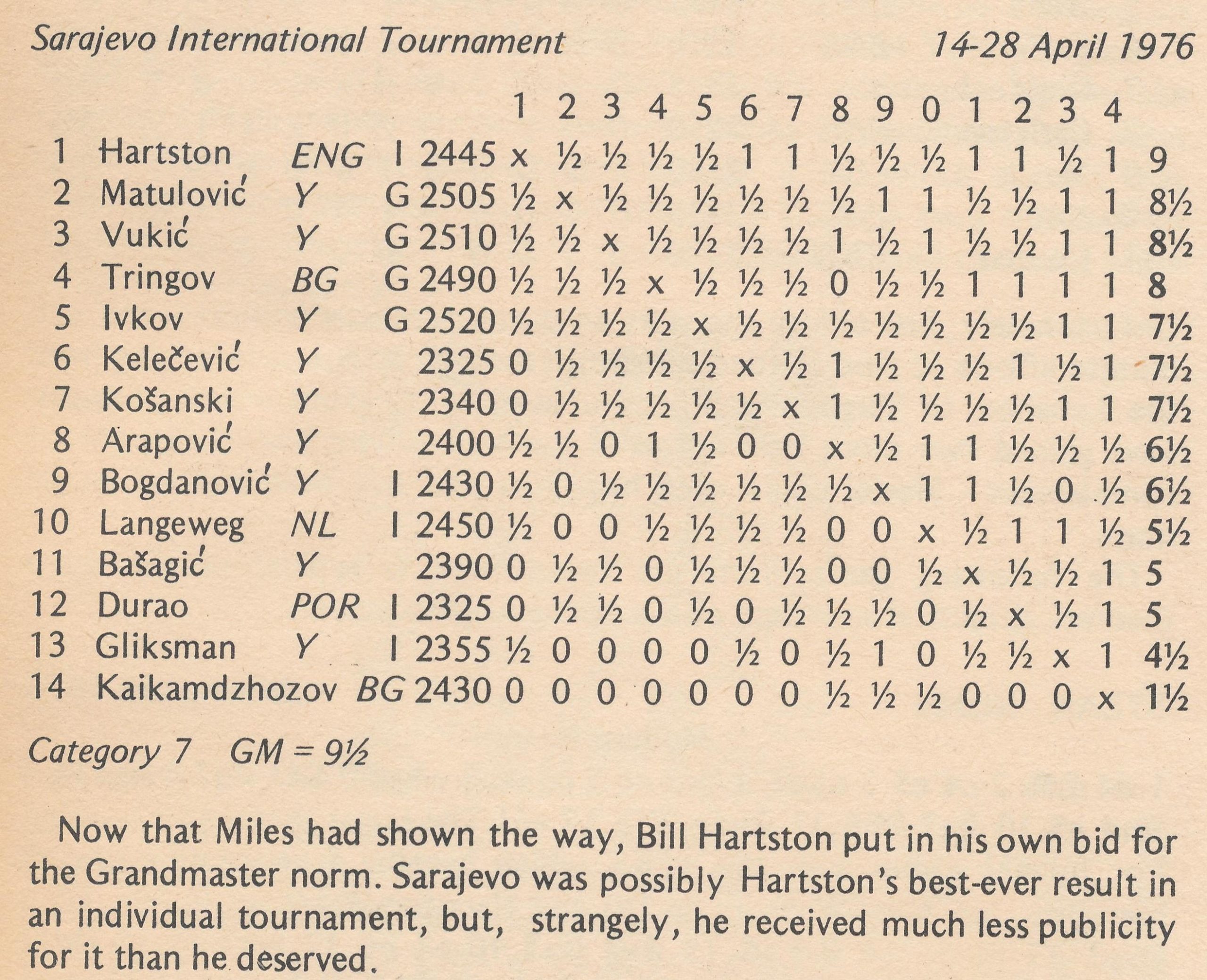
His style of play is sound and competent in all the spheres of the game. That he can be brilliant when necessary he demonstrated his beautiful brilliancy game against the Finnish grandmaster Westerinen at Allicante in 1973. He has a fine, broad knowledge of the openings and has written a number of articles and books on that theme.
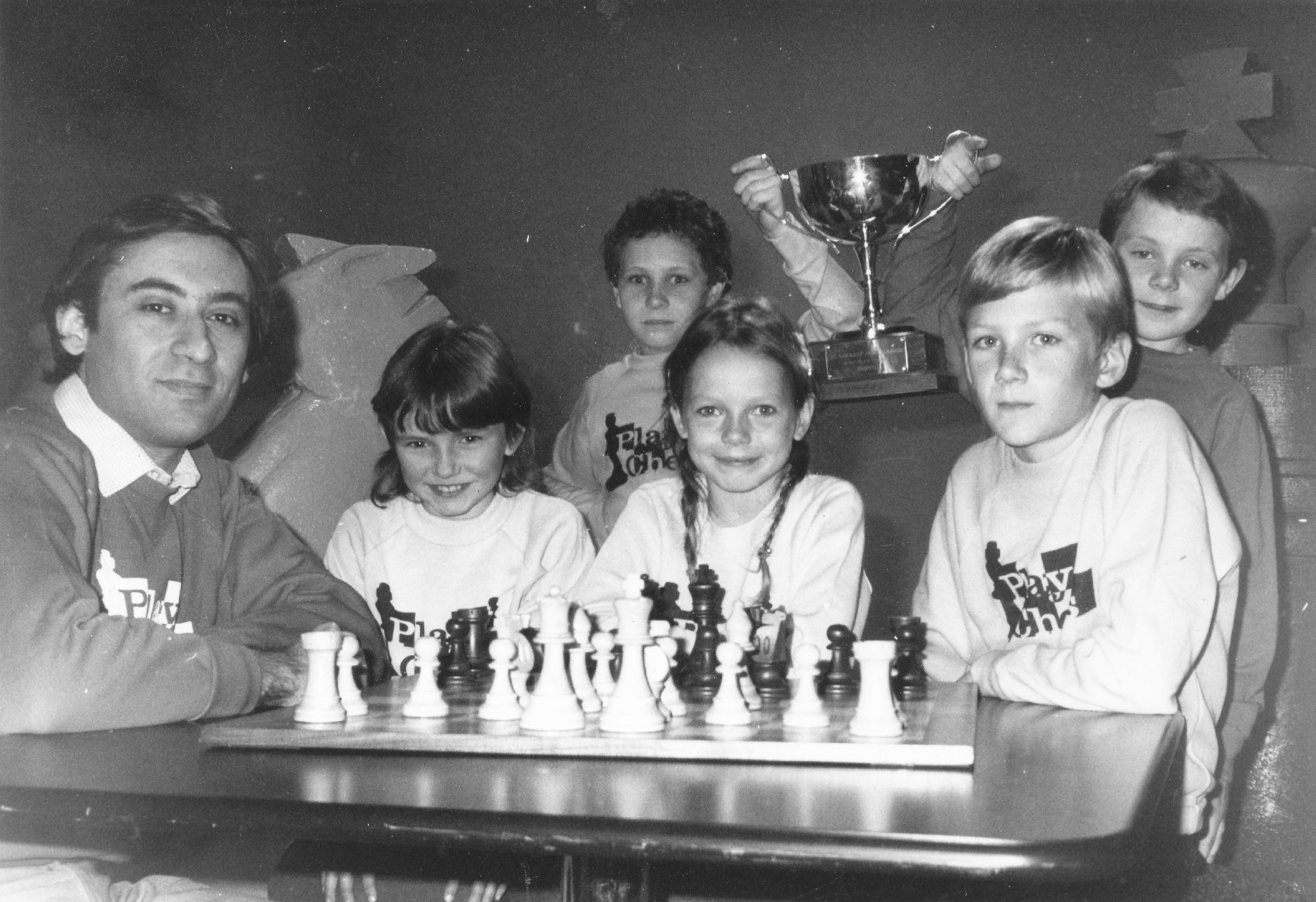
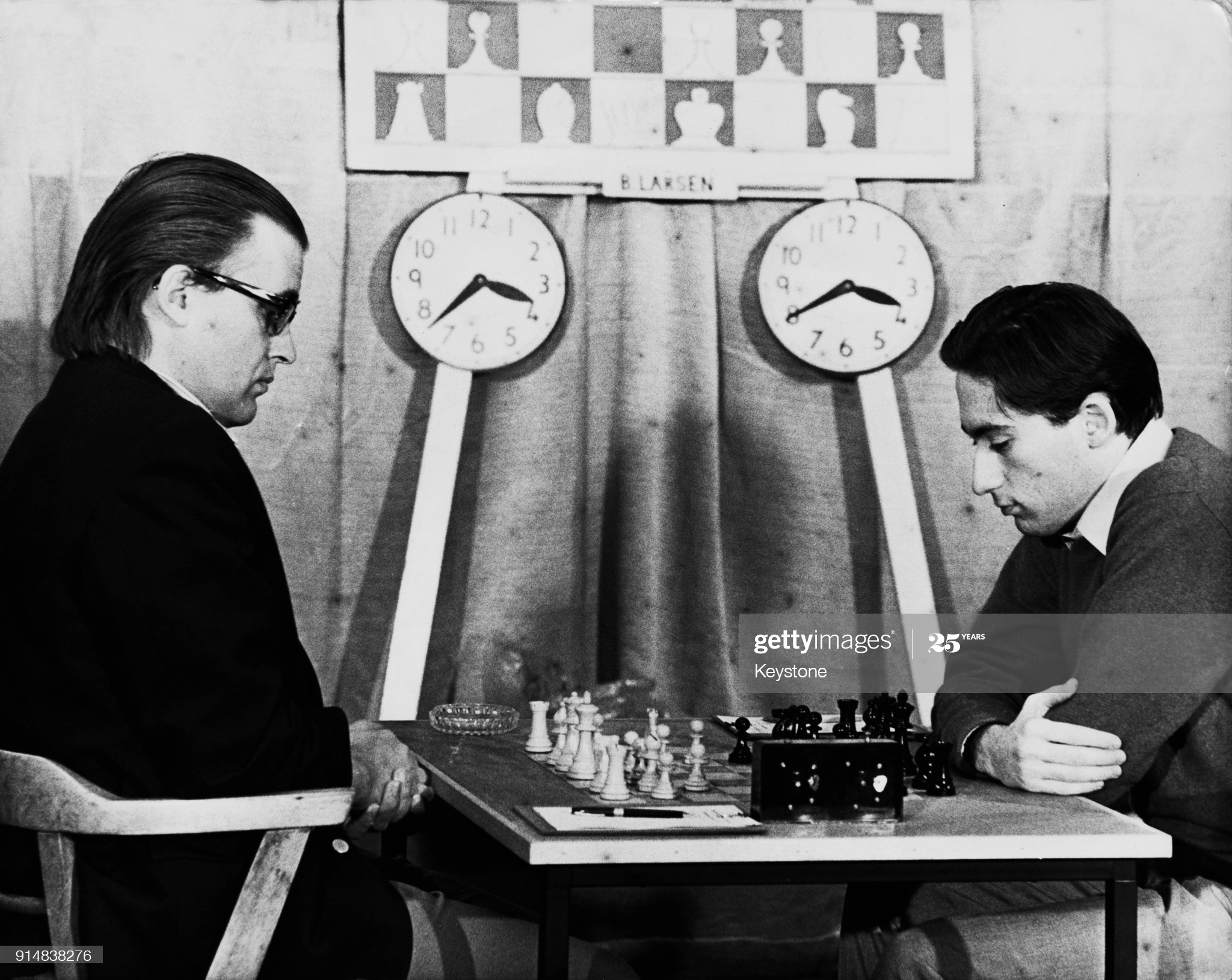
A lucid and entertaining writer, he has also appeared with success in BBC Television chess programmes.
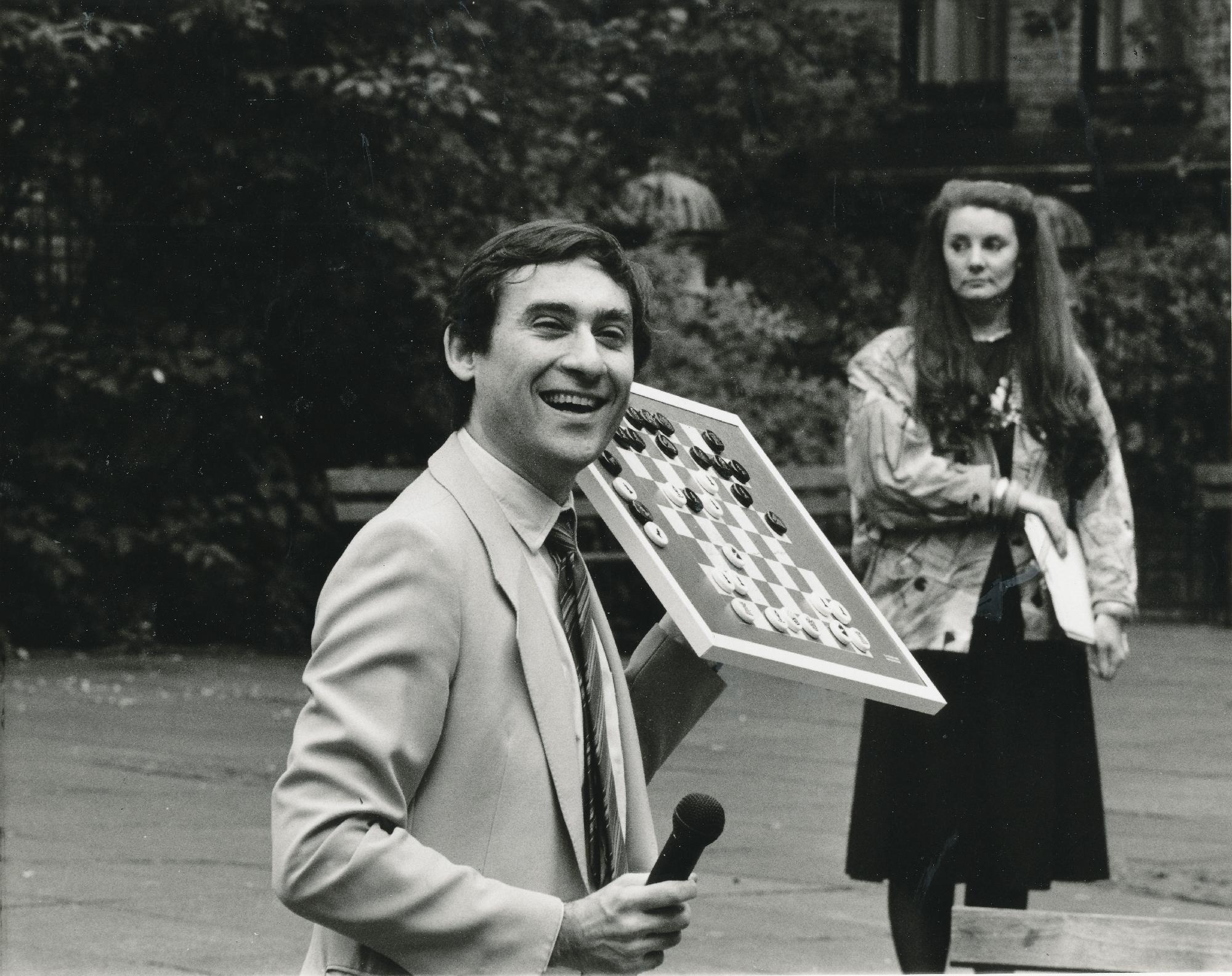
Among his chief works are :
The Benoni, London, 1969
The Grunfeld Defence, London, 1971
The Best Games of CHO’D Alexander (with H. Golombek), Oxford, 1976.”
In modern times Bill has made regular appearances with World Cluedo champion, Josef Kollar on Channel Four’s Gogglebox with a pair of painted breasts as background.
Here is his Wikipedia article
See his entry from the Jewish Lives Project
